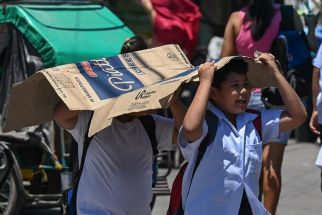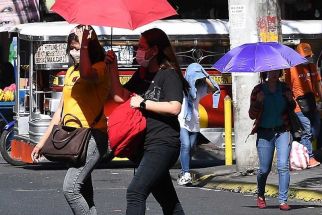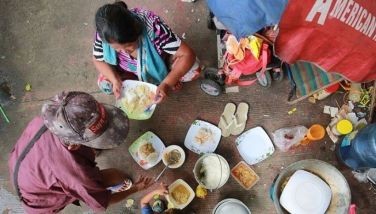Customs seizes shipping container of China chocolates
MANILA, Philippines – The Bureau of Customs (BOC) placed on hold yesterday some 1,630 cases of chocolates from China following a spot check on a 40-foot container van at the Port of Manila.
Customs Intelligence and Investigation Service (CIIS) director Jairus Paguntalan said the holding of the shipment was in compliance with the directive of Customs Commissioner Napoleon Morales last week to check milk products and derivatives imported from China.
The directive was issued while waiting for the Bureau of Food and Drugs (BFAD) to conclude its laboratory tests and issue clearances on China milk products.
“Aside from spot checking, we will witness the 100 percent examination of the content of the van to be conducted by Customs examiners,” said CIIS-Port of Manila officer-in-charge Johnny Martinez.
The cargo, reportedly consigned to Mars Philippines Inc., arrived at the port on board vessel Xin Lian Yun Gang last week.
The shipment’s formal entry document showed Joseph Stephen Borromeo as broker and Yan Qi Industrial Development Zone Huairou CN-101407 Beijing as exporter.
The government stopped the importation of milk products from China after baby formula tainted with the industrial chemical melamine reportedly triggered a food safety crisis that has left at least four infants dead and more than 50,000 children ill in that country.
Meanwhile, Health Secretary Francisco Duque III said that the Department of Health (DOH) is not exaggerating its handling of China’s melamine-laced milk case.
“We have been straightforward and objective in our statements. We’re not grandstanding,” said Duque in reaction to a request by Chinese Ambassador to Manila Song Tao for Filipinos not to over react on the matter.
Song claimed that China is willing to extend any form of assistance to the Philippines related to the milk scandal, but told authorities that they were over reacting.
Duque, however, said that the DOH is handling the issue “without exaggeration.”
Meanwhile, Hong Kong’s food safety agency has found traces of melamine in a Japanese brand Chinese-made cheesecake.
The chemical was found in a sample of Lotte Cream Cheese Cake manufactured by Japan’s Lotte China Foods Co. Ltd. in mainland China. It is the second time authorities have detected the chemical in Lotte’s products.
On fears by some traders that the milk scare would kill the dairy industry, Duque explained that the DOH’s actions are in line with its mandate to protect public health.
“You cannot subjugate public health to business or profits. For us, first and foremost is the health and welfare of the Filipino people,” he told The STAR.
He said the BFAD might release tomorrow initial results of the laboratory tests it conducted on milk product samples randomly collected by the bureau.
“The BFAD had already received the ‘reference standards’ so it was able to start testing samples,” he added.
The reference standards, which came from St. Louis, Missouri in the United States, serve as a gauge for the BFAD to read the level of melamine chemical found in certain specimens.
Before this, the bureau had validated the methods and calibrated the equipment to be used in analyzing the samples.
Duque said the DOH would lobby with Congress for the immediate passage of House Bill 875 strengthening the BFAD.
The measure intends to rename BFAD into Food and Drugs Administration, amending Republic Act 3720 or the Food, Drugs, and Cosmetic Act.
The bureau is equipped with modern machines, but lacks manpower to perform its task of examining and certifying the quality of food, drugs, and cosmetics in the country, Duque said.
In a related development, Nestlé Philippines has conducted confirmatory tests on its dairy and non-dairy products to ensure that its raw materials are not adulterated with melamine.
The analytical tests undertaken by the Nestlé Quality Assurance Center (NQAC) in Singapore, a laboratory accredited by the Singapore Government’s Accreditation Committee, showed that all Nestlé dairy and non-dairy products do not have melamine and are safe for consumption.
Nestlé Philippines director of communications Sandra Puno said the company decided to test both its products to assure consumers that Nestlé products are safe.
She said the company locally produces milk products under the brand names Nido, Bear Brand, Neslac, Nestigen, Nesvita, and Nestle using raw materials from Australia, New Zealand, Europe, and the United States.
Nestlé also imports as finished goods Nan 1, 2, and 3 and Nan HW 1 and 2 and locally repacks Pops Ice Cream, and Maggi Magic Sarap flavoring product. All other Nestle Ice Cream products sold by Nestlé Philippines are also manufactured locally.
“Nestlé products are manufactured under high quality control standards and meet all regulatory standards before they are released to the local market,” Puno said. – With Sheila Crisostomo
- Latest
- Trending






























